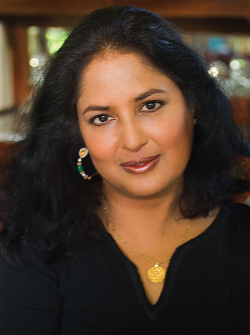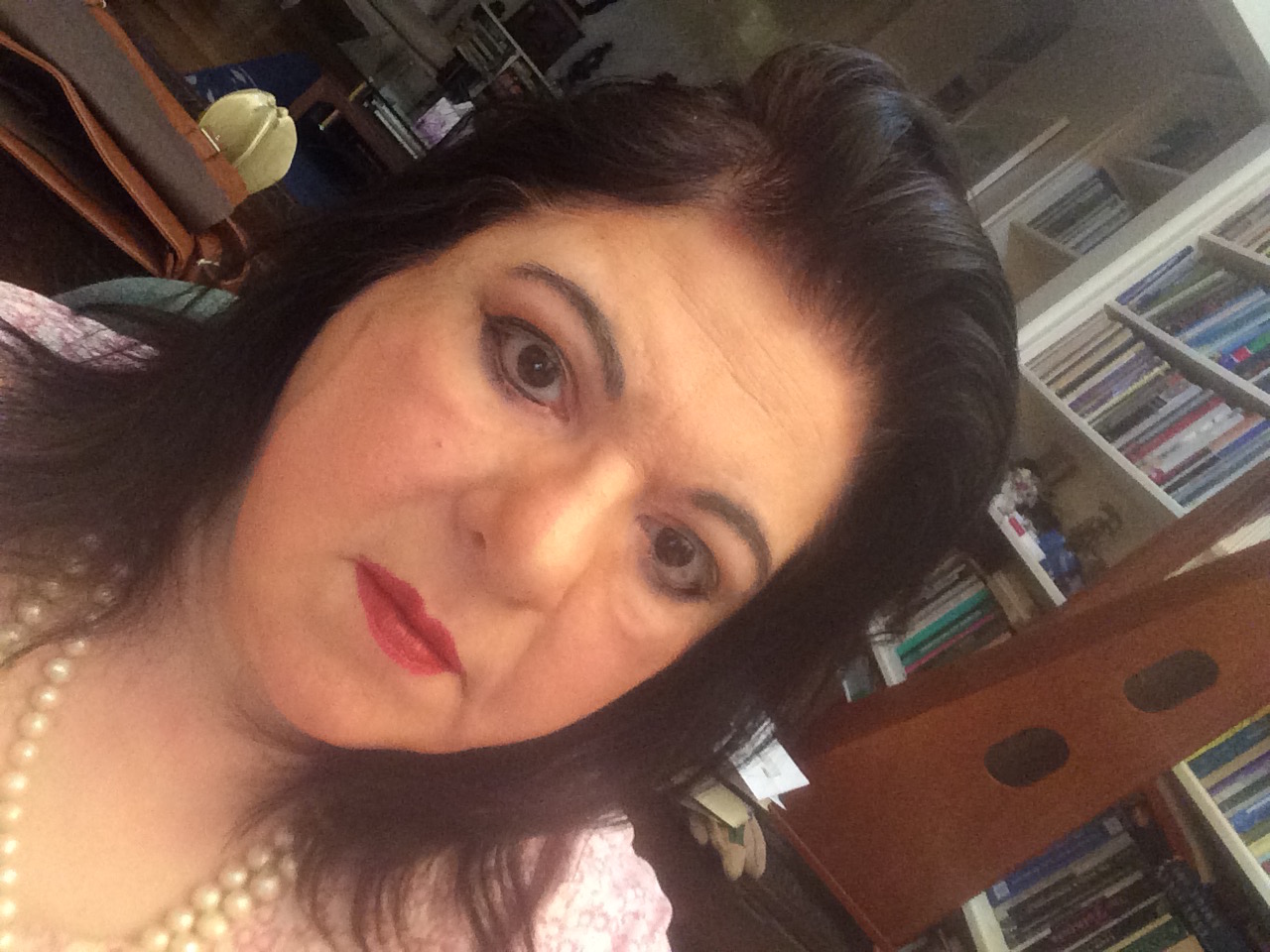
Q. Please introduce yourself in 50 words or less.
I was born, raised and educated in India. I wrote for various magazines round the globe for many years before writing this novel. I now divide my time between India and the island of Bali where I live with my husband, two children and my devoted pets.
Q. You were educated in the beautifully scenic landscape of the Himalayas. It’s the sort of place that city dwellers romanticise, and of course dream of retreating to because it takes you away from the rat race, and gives you time and space to give you perspective on the things that matter. What impact do you think these early experiences had on your creative side?
Those beautiful hills evoked a feeling of poignancy in me as a young girl and I became quite introspective. I grew up surrounded by a sort of lonely-beauty, relying on my own best-guesses to explain the larger issues of life. I read a lot because there was so much true freedom and knowledge in books. I think my childhood experiences made me a contemplative person, and that attitude of mind is what drives my creativity.
Q. But (being a city girl) you write that you did what was expected of you and became a banker. Who expected it, and what would have happened had you taken the decision to become a writer, at that time.
When I was growing up there were only 5 disciplines that offered guaranteed jobs and a salary large enough to get you through life as an ‘independent professional’: medicine, accountancy, management, law and engineering. Of the five, management seemed to be the most loosely defined and so I chose that discipline. The ‘expectation’ I refer to was more of an unwritten, unspoken common wisdom that prevailed at the time because of the kinds of jobs that were available to young men and women then.
I don’t know what it means to become a writer. If it means getting paid to write, then I became a writer 20 years ago. When I was a banker I wrote every day, just as I do now, but I didn’t get paid for it that’s the only difference.
Q. Someone Else’s Garden, is your first novel. Tell us a little about it and what inspired you to write the story?
Yes, Someone Else’s Garden is my first novel. I had something to say and I created a story to say it, I think that is what inspires most writers. I wanted to examine the disconnect between the dharmic (i.e. spiritual) India and the karmic (i.e. the empirical) India, particularly since of late India has been handed the role of guardian to the spiritual keys of the world. I wanted to explore why in such a spiritual place like India – and India is indeed a very spiritual place – is there so much social injustice sanctioned by tradition, what I call the cultural burden of ancient civilisations, and the ways in which that burden can be lifted.
Q. As soon as I started reading it, I knew that I could quite easily be pulled in and swept away by the language and surroundings. It’s a wonderful book. What was the novel writing process like for you and what did it involve?
I follow a discipline that seems to work for me, which is: write a page a day. Someone Else’s Garden took me four years to write, a year was probably spent on the editing. I loved writing it, as I enjoyed the characters. In some ways, the story wrote itself.
Q. Did you draw on real life experiences and real people or is your book entirely a work of fiction?
No work is ‘entirely of fiction’, because each time a writer sits down to write he/she brings himself/herself to the table. Most characters are composite characters, shades of people, sometimes even feelings, that are placed in a particular context to impart a particular message.
Q. The novel starts with the powerful but simple line: “People are defined by what they love and what they hate.” What do you love and hate?
Well, both words are enormous ones to fill. But I love creativity and tolerance, and I intensely dislike bigotry and hatred.
Q. The novel is thought provoking for many reasons and asks a lot from the reader; to reflect on the deep injustices to women, to question the rights of women in a man’s world and to look beyond tradition and culture that often weighs us down. Would you identify yourself as a modern feminist?
No, I am not a feminist, I enjoy the special place we hold as women in the world. And as such, I want to get away from the intellectual distinctions between men and women, so I would rather be described as a humanist.
Q. Do you think, Someone Else’s Garden reflects the reality of the average Indian woman living in India today?
Yes and no. In some ways Indian women are the most emancipated in the world, we can rise to the top of our careers, we can control a household of men, our gods and goddesses hold equal sway over our hearts, which is much more than can be said even for some developed countries. But still, in pockets, albeit deep and wide pockets, women are badly treated, not just by society and men, but also by other women.
Q. Finally what advice would you give to aspiring writers?
Be committed to a particular time and place to work and be demanding of yourself, but equally be compassionate with yourself.
Dipika Rai was born and raised in New Delhi. She was educated in the foothills of the Himalayas, went on to do an MBA and became a banker, as was expected of her. Rai then moved to Bali as a journalist, writing for Vogue India, Marie Claire and numerous international magazines. Someone Else’s Garden is her first novel.
